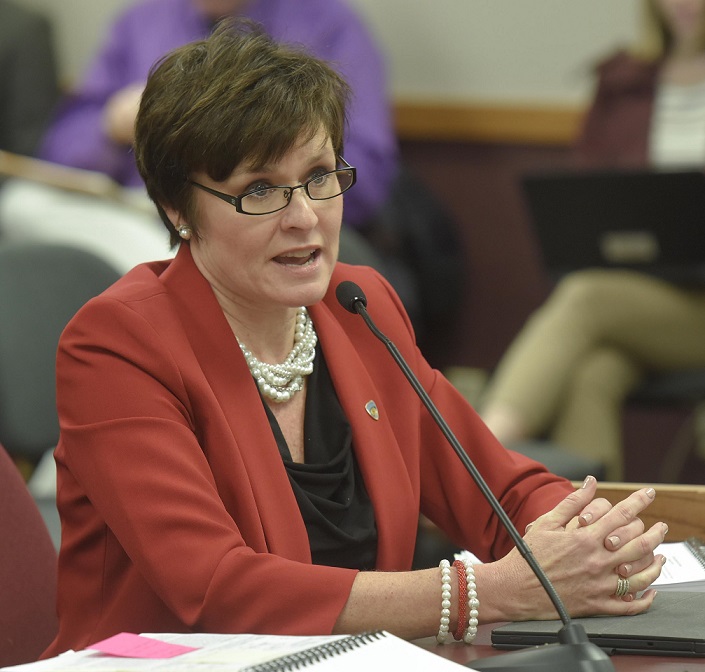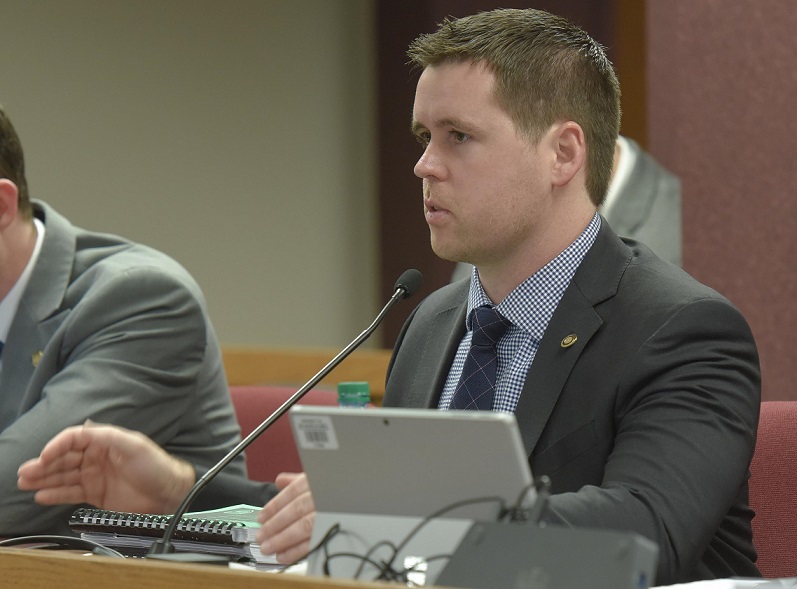The latest version of the House’s proposed budget would restructure the Department of Corrections, in light of how it handled cases of harassment and retaliation against employees.

House Budget Committee Chairman Scott Fitzpatrick (R-Shell Knob) said his plan would redirect money that goes to the Department’s offices of Inspector General and Human Resources, and create an Office of Professional Standards.
Fitzpatrick said he worked with Corrections Director Anne Precythe in developing his proposal.
The House in January announced the creation of the Subcommittee on Corrections Workforce Environment and Conduct after a news article revealed the Department had settled numerous lawsuits filed by former employees who had been harassed. Those settlements were costing the state millions of dollars.
The subcommittee’s chairman, Representative Jim Hansen (R-Frankford), said the committee came to a similar conclusion about the job that the inspector general had been doing.
Fitzpatrick’s spending plan would reallocate within the Department’s budget more than $2.3-million to create the new office.

Precythe did not speak to House Communications for this story, but the Department did supply a memo from her dated March 14. In that, she said the Office of Professional Standards will be made up of the Civil Rights Unit (formerly Human Resources), the Employee Conduct Unit (formerly the office of Inspector General), and the Prison Rape Elimination Act (PREA) Unit.
She said new processes would “begin soon” and, “we are still fine tuning the remaining details,” but said, “We are changing our investigative processes to allow institutions to handle most offender-related incidents. This change allows us to reallocate resources into the Civil Rights Unit. The Civil Rights Unit will conduct investigations into allegations of discrimination, harassment, retaliation, and unprofessional conduct. With additional resources, the Human Relations Officers will be able to conduct and complete investigations even faster than they do now.”
“In addition, Human Relations Officers will soon be conducting training statewide for all employees and will be doing additional outreach and follow up with employees who feel that they have been subjected to discrimination, harassment, retaliation or unprofessional conduct. More Human Relations Officers also means more opportunities for them to visit institutions and offices throughout the state and interact with employees outside of the investigative process.”
Precythe explained the Employee Conduct Unit would investigate employee violations of procedure, unexpected offender deaths, suicides, and potential homicides. Those investigations would be assisted by law enforcement in certain cases.
Fitzpatrick’s budget also removes the “E” found on many lines in the budget. Those Es represents an open-ended spending limit on funds in which legislators expect money beyond what they allocate might be needed before the next budget is created. One such E was found on the budget line from which comes money for settlements the state must pay.
Fitzpatrick and others have said it is because that line had an “E” that legislators were unaware for years of the settlements involving the Department, and the harassment and retaliation issues that caused them. By removing the E, agencies must now come to the legislature and explain why they would need additional money for court settlements. That could shed light on recurring problems such as the Corrections Department had.
Fitzpatrick said he also proposes putting an appropriation for legal expenses in the budget of each state agency, whereas before the money for settlements across all agencies came from one line.
The House continues work this week on a budget proposal to send to the Senate. Once the House and Senate agree on a spending plan it must still go to Governor Eric Greitens (R).



